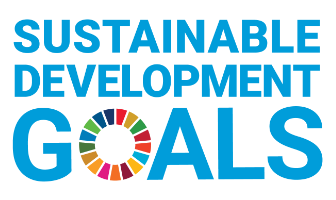Berlijn - Een nieuw rapport van IOMs Global Migration Data Analysis Center (GMDAC) benadrukt de noodzaak van betere gegevensverzameling over de dood en vermissing van migranten, met name die van vermiste migrantenkinderen.
This year’s Fatal Journeys 4 report focuses on the theme of missing migrant children, given the growing number embarking on dangerous migrant journeys. According to IOM data, nearly 1,600 children – an average of almost one every day – were reported dead or missing between 2014 and 2018, though many more go unrecorded. “Tragically, we have been reminded in recent days that children are among the most vulnerable groups of migrants,” said Frank Laczko, Director of IOM’s GMDAC.
“The lack of data on the ages, characteristics and vulnerabilities of missing migrant children creates serious protection gaps; it makes it very difficult to create programs and policies designed to protect them.”
UNICEF contributed a chapter to this latest report, and IOM looks forward to working closely with them in the future.
Five years of Missing Migrants Project data: Other key findings
- Since 2014, IOM’s Missing Migrants Project has recorded globally the deaths of more than 32,000 people.
- Between 2014 and 2018, more than 17,900 people died or went missing in the Mediterranean—the remains of almost two-thirds of those victims have not been recovered.
- Despite the conflict in Yemen, people continue to attempt the sea crossing from the Horn of Africa across the Red Sea and the Gulf of Aden: at least 125 people drowned off the shores of Yemen in 2018, compared with 53 in 2017.
- Of almost 2,200 deaths recorded during migration in South-East Asia between 2014 and 2018, at least 1,723 were Rohingya.
- Most of the 288 deaths recorded in South Asia since 2014 were of Afghan migrants.
- In the Middle East, 421 deaths were recorded between 2014 and 2018; the largest number (145) in 2018.
- An increasing number of deaths on the United States–Mexico border have been recorded each year since 2014, totalling 1,907 over five years.
The timely focus on children is part of IOM’s contribution to a recent call to action launched by UNICEF, UNHCR, IOM, Eurostat and OECD to improve data on migrant and refugee children.
“Children dying or disappearing during migration should be a concern to everyone,” said Ann Singleton, Senior Research Fellow at the University of Bristol and co-editor of the report. “There is an urgent need for better policies and action, informed by better data, to prevent these deaths and protect children.”
Contents
The report includes chapters highlighting the vulnerabilities of children on the move, the legal obligations of States regarding the death and disappearance of children on the move, and the ethical considerations of research on this sensitive subject.
On the growing number of children at risk globally, the report notes that it is often difficult to find data on missing migrants disaggregated by age. The report also notes measures to be taken to improve data on missing migrant children to help prevent future tragedies. Fatal Journeys 4’s concluding chapter discusses IOM plans to improve data on missing migrant children.
“Action is urgently needed to improve the public and policymakers’ understanding of the vulnerabilities of children and migrants,” said Julia Black, Project Coordinator of IOM’s Missing Migrants Project and co-editor of the report.
Estimates Low
IOM researchers explain that the global figure of deaths likely is a low estimate, given that many deaths are never reported nor remains found. Similarly, research indicates that the sharp drop in deaths between 2017 and 2018—to 4,734 from 6,280—stems largely from a drop in the number of migrants using the Central Mediterranean route to Europe, when the number of recorded crossings from North Africa to Italy fell to less than 46,000 from over 144,000.
Increased Risk
Nonetheless, the risk of death along this route increased. As explained in the report, death rates can be calculated in several ways. Yet even the most conservative estimates suggest that 1 in 35 people crossing the Central Mediterranean perished in 2018, compared with 1 in 50 in 2017. Moreover, the number of migrant deaths recorded along the Western Mediterranean route to Spain rose sharply from 224 in 2017 to 811 in 2018, as increasing numbers of migrants used this route to reach Europe.
For more information, please contact:
Frank Laczko at IOM’s Global Migration Data Analysis Centre (GMDAC), Tel: +49 30 278 778 20 Mobile: +49 151 1167 6795, Email: Dit e-mailadres wordt beveiligd tegen spambots. JavaScript dient ingeschakeld te zijn om het te bekijken.
Julia Black at IOM’s Global Migration Data Analysis Centre (GMDAC), Tel: +49 30 278 778 27, Email: Dit e-mailadres wordt beveiligd tegen spambots. JavaScript dient ingeschakeld te zijn om het te bekijken.
Ann Singleton at the University of Bristol, Tel. +44 772 097 9932 Email: Dit e-mailadres wordt beveiligd tegen spambots. JavaScript dient ingeschakeld te zijn om het te bekijken.




